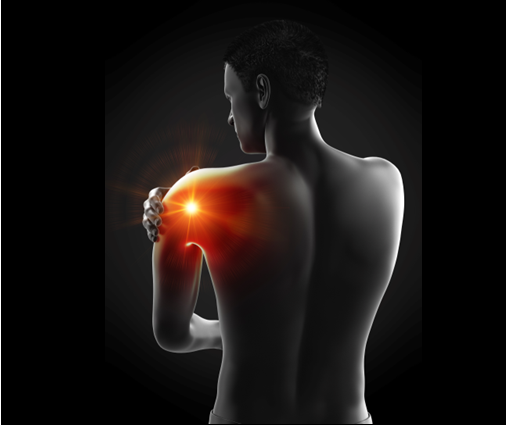Are you feeling stiffness and pain in your upper shoulder joint? In time, you may feel your range of movement of the shoulder becomes limited. You may not be able to move your arms and shoulders freely like you did before. This condition is called frozen shoulder.
Frozen shoulder occurs when the strong connective tissue surrounding your shoulder joint becomes thick, stiff and inflamed. This can lead to chronic pain. There could also be swelling or numbness at the affected area. Usually, you would notice that one arm is hard to move. To lift your arm is painful and the shoulder aches so much so that at night it becomes difficult to fall asleep, aggravated by moving the shoulders.

Its called “frozen shoulder” because due to the pain you feel in your shoulder, you are less likely to use that shoulder. And lack of use causes your shoulder capsule to thicken and become tight, making your shoulder even more difficult to move — it’s “frozen” in its position. Pain from frozen shoulder is usually dull or aching. It is typically worse in the early part of the ailment and when you move your arm. The pain is usually located over the outer shoulder area and sometimes the upper arm. Frozen shoulder develops when inflammation causes your shoulder joint capsule to thicken and tighten. Thick bands of scar tissue called adhesions develop over time, and you have less synovial fluid to keep your shoulder joint lubricated. This makes it more difficult for your shoulder to move and rotate properly. You are at a higher risk of developing frozen shoulder if you have had shoulder injury or surgery where you need to hold your shoulder from moving. Using a shoulder brace or sling increases your risk of frozen shoulder. If you have diabetes, there is about a 20% chance of developing frozen shoulder. People with stroke, underactive or overactive thyroid gland, Parkinson’s disease and heart disease are also at higher risk for developing frozen shoulder. Stroke is a risk factor for frozen shoulder because movement of your arm and shoulder may be limited. The usual medical treatment for frozen shoulder is non-steroidal anti-inflammatory drugs (NSAIDs). Anti-inflammatory medications like aspirin and ibuprofen is used to reduce pain and swelling. Cortisone may be used to be injected directly into your shoulder joint. Unfortunately, these drugs carry with them unpleasant side effects such as gastrointestinal issues such as stomach lining irritation, ulcers, and kidney problems, as well as potential cardiovascular and urinary system issues, especially with long-term oral use. There is a better way. In the holistic view, the upper shoulder pain is caused by accumulated dirty blood which has become hard in the surrounding joint and muscles. This leads to a reduced flow in blood circulation at the upper shoulders. HijamaEnergetics sessions stimulate the flow of blood and lymph to the affected area thereby relieving pain and stiffness in the upper shoulders. The procedure extracts toxins, releases tension and moves stagnation. Marks resembling bruising may remain, but they will fade after a few days. Usually, clients will feel some relief on the first treatment, but by third treatment, many people become pain free and have anywhere between 80-100% full flexibility and movement, insha-Allah.
HijamaEnergetics Sessions for Frozen Shoulder
When you have the pain of frozen shoulder, the natural remedy of HijamaEnergetics can help.
At HijamaEnergetics, we only use natural healing modalities such as Hijama, herbs, nutritionals, microcurrent therapy, bioenergetic remedies and emotional healing to relieve your joint pain. The sessions can help cut down the intensity and frequency of your joint pain.
Contact us today to see how HijamaEnergetics can help reduce your frozen shoulder pain. We provide FREE consultations over the phone.
Questions?
Amin Shah
Shahclan HijamaEnergetics
Boston, MA -USA
Phone 617-787-5151 (Landline)
Email: aminshah@shahclan.boston
